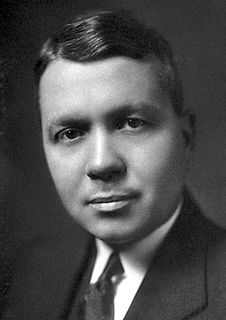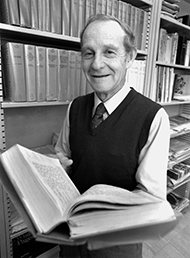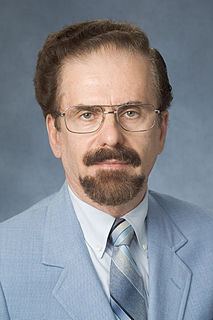Related Research Articles

The University of California, San Diego is a public land-grant research university in San Diego, California. Established in 1960 near the pre-existing Scripps Institution of Oceanography, UC San Diego is the southernmost of the ten campuses of the University of California, and offers over 200 undergraduate and graduate degree programs, enrolling 31,842 undergraduate and 8,631 graduate students. The university occupies 2,178 acres (881 ha) near the coast of the Pacific Ocean, with the main campus resting on approximately 1,152 acres (466 ha).
Energy economics is a broad scientific subject area which includes topics related to supply and use of energy in societies. Due to diversity of issues and methods applied and shared with a number of academic disciplines, energy economics does not present itself as a self-contained academic discipline, but it is an applied subdiscipline of economics. From the list of main topics of economics, some relate strongly to energy economics:

Harold Clayton Urey was an American physical chemist whose pioneering work on isotopes earned him the Nobel Prize in Chemistry in 1934 for the discovery of deuterium. He played a significant role in the development of the atom bomb, as well as contributing to theories on the development of organic life from non-living matter.

Sir Clive William John Granger was a British econometrician known for his contributions to nonlinear time series analysis. He taught in Britain, at the University of Nottingham and in the United States, at the University of California, San Diego. Granger was awarded the Nobel Memorial Prize in Economic Sciences in 2003 in recognition of the contributions that he and his co-winner, Robert F. Engle, had made to the analysis of time series data. This work fundamentally changed the way in which economists analyse financial and macroeconomic data.
Eleanor Margaret Burbidge, FRS (néePeachey; 12 August 1919 – 5 April 2020) was a British-American observational astronomer and astrophysicist. In the 1950s, she was one of the founders of stellar nucleosynthesis and was first author of the influential B2FH paper. During the 1960s and 70s she worked on galaxy rotation curves and quasars, discovering the most distant astronomical object then known. In the 1980s and 90s she helped develop and utilise the Faint Object Spectrograph on the Hubble Space Telescope. Burbidge was well known for her work opposing discrimination against women in astronomy.
Harry Max Markowitz is an American economist, and a recipient of the 1989 John von Neumann Theory Prize and the 1990 Nobel Memorial Prize in Economic Sciences.

Daniel Howard Yergin is an American author, speaker, energy expert, and economic historian. Yergin is vice chairman of IHS Markit, a research and information company which absorbed his own energy research consultancy Cambridge Energy Research Associates in 2004. He has authored or co-authored several books on energy and world economics, including the Pulitzer Prize–winning The Prize: The Epic Quest for Oil, Money, and Power, (1991) The Quest: Energy, Security, and the Remaking of the Modern World (2011), and The New Map: Energy, Climate, and the Clash of Nations (2020). Yergin's articles and op-eds on energy, history, and the economy have been published in publications such as The Wall Street Journal, The New York Times, The Washington Post, and the Financial Times. All of Yergin's books have been drafted in long-hand. Currently a director on entities such as the Council on Foreign Relations and the United States Energy Association, he is also a trustee of the Brookings Institution and a long-term advisor to several U.S. administrations, as well as chairman of the annual CERAWeek energy conference.

David Noel Freedman (1922–2008) was an American biblical scholar, author, editor, archaeologist, and, after his conversion from Judaism, a Presbyterian minister. He was one of the first Americans to work on the Dead Sea Scrolls. He is the son of the writer David Freedman. He died of a heart ailment.

Joseph Gilbert Hamilton was an American professor of Medical Physics, Experimental Medicine, General Medicine, and Experimental Radiology as well as director (1948-1957) of the Crocker Laboratory, part of the Lawrence Berkeley National Laboratory. Hamilton studied the medical effects of exposure to radioactive isotopes, which included the use of unsuspecting human subjects.
Stephen W. Salant is an economist who has done extensive research in applied microeconomics. His 1975 model of speculative attacks in the gold market was adapted by Paul Krugman and others to explain speculative attacks in foreign exchange markets. Hundreds of journal articles and books on financial speculative attacks followed.
Jeffrey Locke Elman was an American psycholinguist and professor of cognitive science at the University of California, San Diego (UCSD). He specialized in the field of neural networks.

William Arnold Barnett is an American economist, whose current work is in the fields of chaos, bifurcation, and nonlinear dynamics in socioeconomic contexts, econometric modeling of consumption and production, and the study of the aggregation problem and the challenges of measurement in economics.
Steven C. Hackett is an American economist, and Professor of Economics at Humboldt State University (HSU), known for his contributions to the fields of environmental and natural resources economics.
The Irwin and Joan Jacobs School of Engineering is an undergraduate and graduate-level engineering school offering BS, BA, MEng, MS, MAS and PhD degrees at the University of California San Diego in La Jolla, California. The Jacobs School of Engineering is the youngest engineering school of the nation's top nine, the largest by enrollment in the University of California system, and the ninth-largest in the country. More than thirty faculty have been named members of the National Academies. The current dean of the Jacobs School of Engineering is Albert P. Pisano.
Halbert Lynn White Jr. was the Chancellor’s Associates Distinguished Professor of Economics at the University of California, San Diego, and a Fellow of the Econometric Society and the American Academy of Arts and Sciences. A native of Kansas City, Missouri, White graduated salutatorian from Southwest High School in 1968. He earned his PhD in Economics at the Massachusetts Institute of Technology in 1976, and spent his first years as an assistant professor in the University of Rochester before moving to UCSD in 1979.

James Richard Arnold was the Harold C. Urey Professor of Chemistry (emeritus), and a noted pioneer in the field of planetary and space chemistry at the University of California at San Diego (UCSD), where an endowed lectureship has been established in his name.
Stanford Solomon Penner also known as Sol Penner, was a German-American scientist and engineer, a major figure in combustion physics, especially in rocket engines, and a founder of the Engineering program at University of California, San Diego. He obtained his PhD in 1946 from the University of Wisconsin–Madison under Farrington Daniels and Theodore von Kármán.
James Andreoni is a Professor in the Economics Department of the University of California, San Diego where he directs the EconLab. His research focuses on behavioral economics, experimental economics, and public economics. Andreoni is well known for his research on altruism, and in particular for coining the term warm-glow giving to describe personal gains from altruistic acts. Andreoni's research uses a mixture of economic theory, experiments, and standard analysis of survey data to explore a variety of topics including: moral decision making, time preferences, charitable giving and altruistic decisions. His research has been described as expanding “our understanding of donors and charities and our broader understanding of public goods and expenditures.”
Kent Worcester is an American political scientist, historian, critic, and songwriter. His work deals with popular culture, intellectual history, trade unions, and social democracy. He has written extensively on comics and graphic novels and wrote a biography of C.L.R. James, the West Indian intellectual, among many other publications.